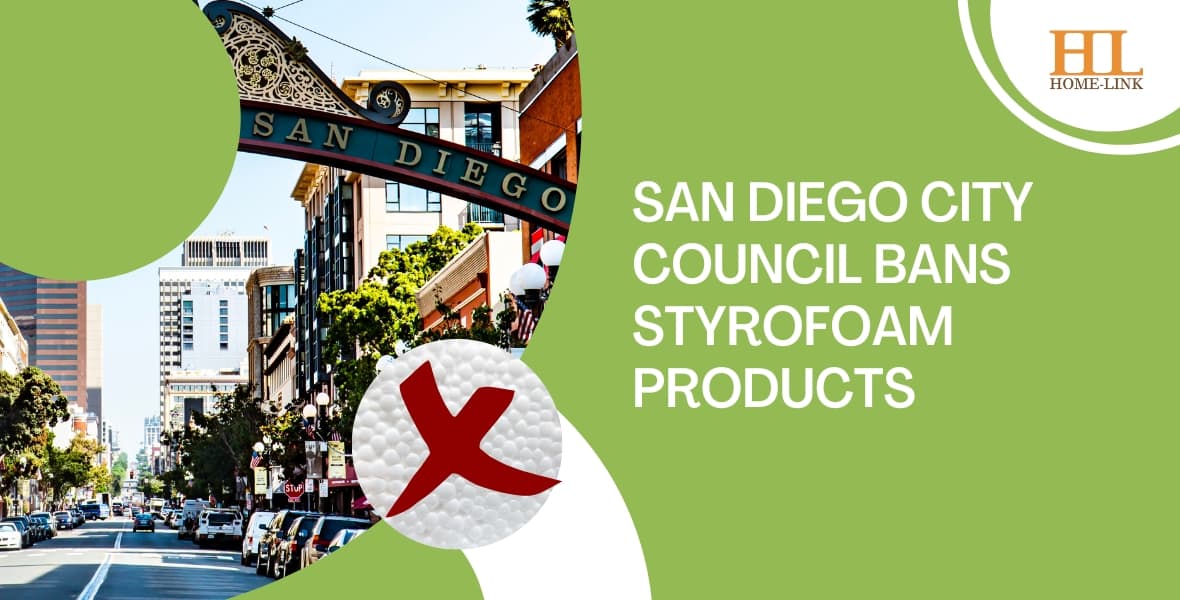According to the city report on the ordinance, small businesses would be given a 12-month exemption from paying city taxes if they had less than $500,000 in annual sales.
Next year, San Diego will ban all single-use polystyrene foam food containers, utensils, coolers, and pool toys. In addition, styrofoam products are on the way out.
It’s difficult to find a market willing to recycle Styrofoam products in the city, and they often end up in the landfill if they aren’t broken down into tiny bits first, according to a staff presentation at Tuesday’s meeting.
“I don’t want to live in a world where the oceans are dying,” said Hela Khalil, a high school student at UC San Diego. “That’s why I am urging you, in charge, to act now, so that other young people do not have to live in a world ravaged by climate change.”
According to a report by city staff, polystyrene “poses a threat to the environment in San Diego, including our canyons, streets, waterways, and beaches, because it is a menace to birds, fish, and other organisms that eat it.”
Surfrider Foundation policy manager Mitch Silverstein said plastic foam products were the second-most picked-up litter on San Diego County beaches during a recent cleanup event.
Polystyrene products are already banned in 130 California municipalities, including all of San Diego County’s coastal cities. Los Angeles County’s prohibition will go into effect in December, and the Los Angeles City Council will discuss a similar measure in December. Of all of San Diego County’s coastal cities, only Oceanside will still permit polystyrene use once San Diego’s ban kicks in April 2023.
In 2019, the council passed an ordinance banning polystyrene—also known as Styrofoam—products. A California Environmental Quality Act lawsuit brought forward by restaurant representatives, the California Restaurant Association, and Dart Container Corporation of California stalled enforcement. A year earlier, then-councilman Chris Ward began work on the ordinance.
San Diego agreed to prepare an environmental impact report under the California Environmental Quality Act as part of a settlement in a lawsuit over the city’s single-use plastic ordinance. A shortened version of the report was presented along with a request to re-adopt the original ordinance on Tuesday.
Because of its chemical structure, polystyrene may help prevent the growth of bacteria and reduce food-borne illness, according to a study cited by Daniel Brunton, a lawyer for Dart and other chemical companies.
The ordinance passed 7-1, with Councilman Chris Cate the lone no vote and Councilwoman Vivian Moreno on maternity leave.
Councilwoman Marni von Wilpert was displeased that the ordinance was previously stopped by large companies using a CEQA lawsuit, which she said was intended to help the environment. She said the council should begin work on a partner ordinance to ban plastic straws immediately.
Jennifer Ott, an environmental specialist for the city, said much of the city’s work would be education for business owners, including offering alternative products to Styrofoam. Restaurant owners argued that the ban would impose additional costs on their businesses.
The ordinance also includes language ensuring delays and hardship exceptions for small businesses and restaurants. According to the proposed ordinance, small businesses with less than $500,000 in annual sales would be exempt from the new tax for a year.

